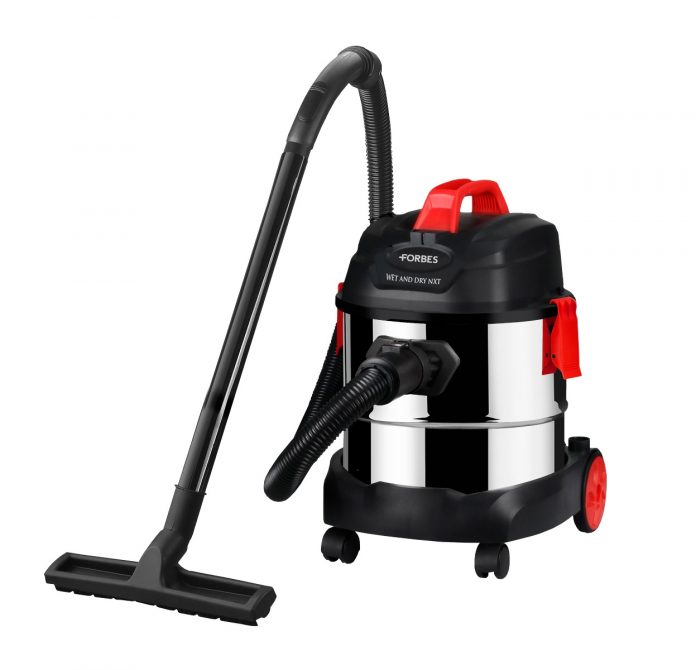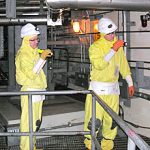Last Updated on May 22, 2024 by Ali Hamza
Cleaning Technologies
The cleaning technologies market is a global industry. It includes all companies that manufacture and distribute products related to the maintenance of cleanliness in a facility or a location, be it private or public.
It is a reality that the surfaces we come into contact with on a daily basis may harbor viruses, whether you are shopping in clothing stores, using transit, or cleaning your own homes. COVID-19 has prompted a surge in household cleaning supplies demand. In order to make employee and general public safety a priority, organizations have focused on stricter and more thorough cleaning procedures. While stores usually do not accept returns, particles can spread as we brush against things or walk about as we go about our daily routines. As a result, best practices for scrubbing public spaces have been discovered. Furthermore, an entrepreneurial race has been launched in search of more efficient cleaning techniques. A pandemic-induced change in cleaning technologies in various ways has been observed.
Cleaner technologies: what are they?
Cleaner Technology, one Clean technology refers to technologies that prevent environmental harm at its source by reducing or eliminating the production of contaminants or wastes.
Industries within this sector include
- Commercial/institutional cleaning
- Residential cleaning
- Technical services for building infrastructure (e.g., carpets)
The two largest markets are institutional and residential cleaning, which together make up about 70% of the total. In Europe alone, there are over 50 000 companies operating in the field of cleaners . The commercialization of new products brings annual growth rates ranging from 3% to 5%, depending on the country and the product.
Cleaning technologies involves a large number of participants
- Manufacturers and distributors in the building materials industry
- Wholesalers and retailers of cleaning products in specialized stores (e.g., in supermarkets)
- Cleaning companies/service providers
In addition to generating turnover from sales, companies engaged in cleaning technologies can benefit from indirect revenue from service applications such as the commercialization of patented systems for dispensing liquids at low cost, tools to improve productivity when replacing appliances, or even software which streamlines workflows by incorporating information on inventory. Other specific activities include selling detergents or providing maintenance services.

1. Radiation with UV wavelengths is effective at killing virus particles
UV light is beginning to be used for cleaning across a number of industries. Clothing retailers attempted to use it as a replacement for steam cleaning, which causes problems with HVAC systems and makes stores hot and muggy. With LEDs emitting ultraviolet light, especially UV-C light, which is a deadly weapon for bacteria and viruses, it is less expensive, easier to install, operate, and maintain. But further development is needed. Scientists developed them as a means to sterilize water, but are now considering ways to make them stronger, more durable, and cheaper.
2. Developing data-driven, IT-based cleaning tools is being accelerated based on the cleaning industry
In order to clean, you need to keep track. Using smart cleaning tools can simplify operations, save time, and permit the deep cleaning required for cleaning tasks to be completed. Touch-free dispensers, which track compliance, are among the smart technology in the cleaning industry. Yet there are still a lot of unexplored possibilities in smart cleaning technology. There are some “robot custodians”, but the more we are able to prevent potential exposure through manual cleaning, the more we will benefit.
3. Robot custodians disinfect hospitals, airports, and more
In particular, hospitals and airports are rushing to purchase fully functioning cleaning robots. In the early days of the pandemic, Sharp Grossmont Hospital in San Francisco spent $250,000 on two robots. An operating room can be disinfected in 12 minutes by these UV-equipped acquisitions. It can take 90 minutes to do this manually. The pandemic is accelerating the U.S. economy’s drive toward automation through the use of similar technologies in airports, stadiums, and public transportation. In addition to being more efficient, machines can also help protect human health by eradicating germs and preventing human contact.
4. With a disinfectant spray, drones cover a large area
A large space like an arena or an airport poses a number of challenges related to cleaning. Lucid Drone Technologies has integrated disinfectants into its drones so that they can navigate in a timely manner while maintaining cleanliness. Drones of this type can visit 23,000 square feet in an hour. As of June 2020, the company has begun shipping drones to cleaning companies under its contract. Nonetheless, some cleaners can be wary of high-tech methods, stating that while drones may cover large areas more efficiently, humans who are fully trained to disinfect the area will ensure it is clean.
Read More: How much does a car wash make? All you need to know
5. It is less necessary to deep clean surfaces with self-cleaning capabilities
Changing the material properties can improve safety so that viruses can’t live on surfaces for as long as they live on other surfaces. Coronaviruses can survive for 72 hours in plastic and steel. However, metals like silver and copper have been shown to kill viruses within four hours. The duration of this project is far too long for human-to-surface contact to be eradicated completely. University of Birmingham researchers are developing NitroPep, which is a new product that punctures and murders viruses within minutes. Any surface that comes in contact with a membrane will be ruptured by adding this material. If I had my way, I’d cover everything with it!
6. Microbes can be destroyed by using transparent coatings on surfaces
To make surfaces more virus-resistant, you can coat them with a less permanent method. A Danish company called ACT. Global produces a coating that, when exposed to light, reacts to break down microorganisms. Light is needed to activate the coatings, and the durability depends on the amount of light available. They last up to a year with good light. Light coming from inside works just as well, and sunlight or any special lighting will not be required.
Natural moisture and oxygen are converted into free radicals by titanium dioxide to continuously decompose bacteria and viruses. In areas like hotels, where rooms are often needed to accommodate new customers before the next group arrives, this is an interesting solution. In the absence of a vaccine, the amount of people traveling is likely to increase, so ensuring hotel safety is extremely important. Whether it’s at home, at the store, or elsewhere, we need all kinds of solutions.
Apart from this if you’re interested to know about LG Fully Automatic Washing Machine Price List in India then please visit our website https://writedailynews.com.
























